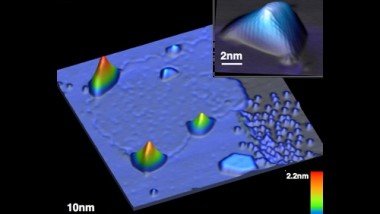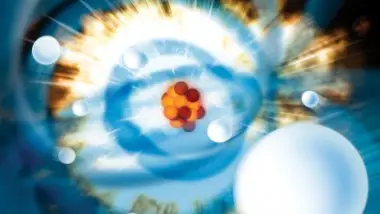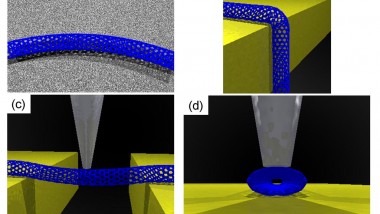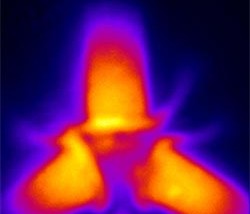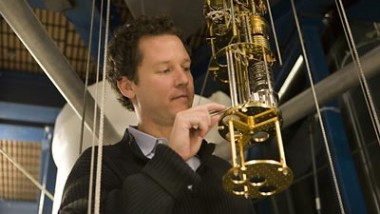Physicists from the University of California, Berkeley, and the Lawrence Berkeley National Laboratory have recently presented an innovativew technique to utilize graphene, a pure carbon sheet used in the semiconductor industry. The new study offers ways to stretch graphene, making ...
Unpeeling Atoms and Molecules from the Inside Out
An international team of scientists recently published surprising results regarding atoms’ structure, showing that it’s possible to create “hollow” atoms by stripping electrons one-by-one. Their work used one of the world’s most powerful X-ray lasers, located at the Department of ...
Carbon Nanotubes for Chemical Detection
Researchers at Rice University and Rensselaer Polytechnic Institute have recently been able to use carbon nanotubes to make the “blackest black” — the darkest material ever created, reflecting only 0.045 percent of all light shown on it. Schematic of a ...
Integrated Circuit Works Using New Excitons
Researchers at the University of California, San Diego, have developed an experimental integrated circuit that works using excitons. Excitons are energized electrons bound to positively charged counterparts called holes, which form when light hits a semiconductor. The commercialization of this ...
Graphene Semiconductors
Physicists at the University of Maryland have proven that graphene holds great promise for replacing conventional semiconductor materials such as silicon in applications ranging from high-speed computer chips to biochemical sensors. At room temperature, graphene‘s intrinsic limit to the mobility ...
Illogical Secret of Superconductors Discovered
A research conducted at Princeton University has uncovered part of the mechanism that transforms matter into a high-temperature superconductor – a medium that conducts electricity without resistance-related energy loss. This mechanism, which has eluded scientists for over 20 years, seems ...
Speeding Up Atomic-Level Microscopy
Scientists from Cornell and Boston Universities, headed by Keith Schwab, Associate Professor of Physics at Cornell University, have developed a new scanning tunneling microscope (STM). The microscope’s design is based on an existing technique, which is used in a novel ...

